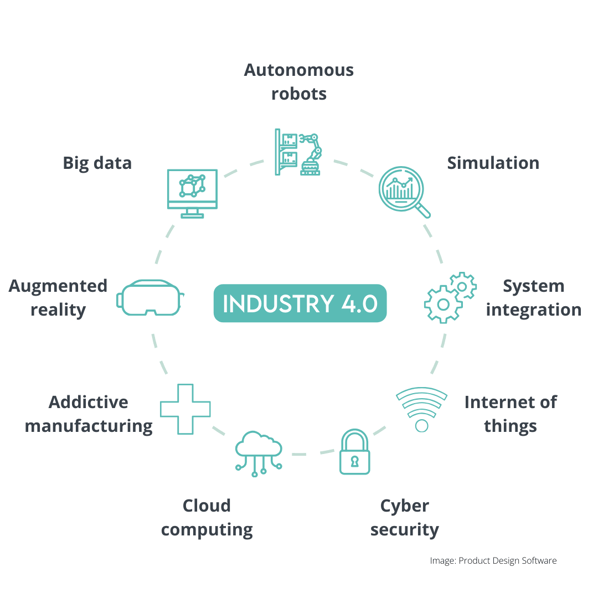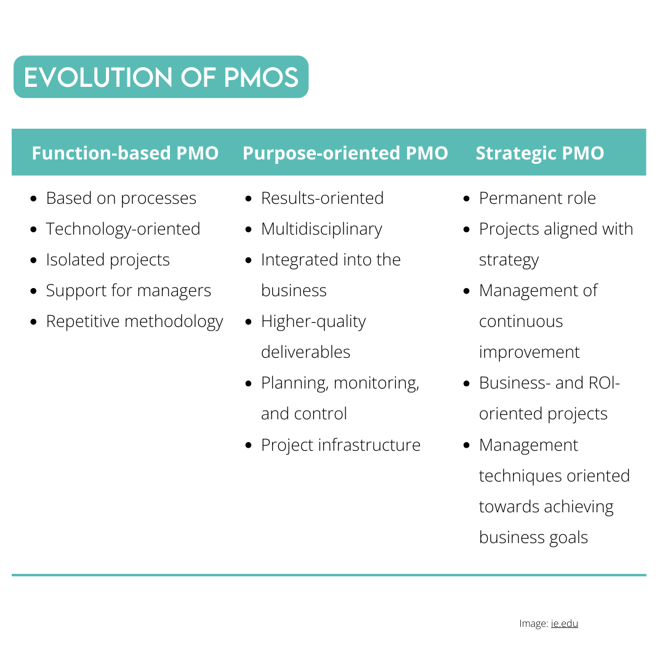
The evolving role of the PMO in digital transformation projects

You’d be hard-pressed to find a Risk Manager who would advise investing in a project that only has a 30% chance of success. Yet despite Mckinsey’s warning that an eye-watering 70% of digital transformations fail, IT spend in Australian companies is projected to hit $133 billion in 2024. Why? Because the potential rewards of digital transformation are enormous, as are the costs of inaction.
Project Management Office (PMO) and Digital Transformation
There are several ways an organisation can increase their chances of success, including having the right leadership (CIO) in place, taking a whole-of-company approach, and by empowering their Project Management Office (PMO) to make it all happen.
Project Management has undergone a significant transformation in recent years, driven by the rapid advancements in digital technologies. PMOs have emerged as key change managers in this new environment, adapting to the evolving landscape and leveraging digital tools to drive successful project outcomes.
But to be effective change agents in the digital era, PMO professionals will need to take a proactive approach to future-proofing, embracing AI, and navigating the challenges of digital transformation.
In this article, we share thought-provoking insights from industry experts Connie Beck (Group Director - IT Transformation & Digital at Urbis) and Sam Ransley (Director at 696 Consulting), who joined us at a recent roundtable event hosted by Mark Watson from the Six Degrees Executive Technology team.
The evolving role of the PMO
“We are no longer just PMO managers, we are change managers and delivery managers.” - Sam Ransley
As the post-COVID world pivoted rapidly to remote work and digital collaboration, PMOs have played a vital role in ensuring project continuity and enabling teams to adapt to the new normal.
Connie Beck, a leading expert in digital transformation, positions modern PMOs within the context of the fourth industrial revolution (Industry 4.0), as proposed by Klaus Schwab, which has dramatically accelerated the pace of technological change. By reshaping the way we work, this revolution has challenged traditional project management paradigms.

From Big Data to Robotic Process Automation (RPA), Industry 4.0 technologies have empowered Project Management and transformed the way projects are realised. Project Managers must adapt to new needs and expectations, embracing agile methodologies, customer-focused practices, and – inevitably – AI.
AI plays a vital role in project management by reshaping processes, providing actionable insights, eliminating complexity, and optimizing performance. Digital transformation is challenging but crucial for Industry 4.0, requiring commitment and cultural change.
Digital Transformation toolkit for PMOs
“All roads lead to digital. We have UX, EX, CX – there’s a lot happening in this space.” - Connie Beck
Strategy is a key anchor point for initiating digital transformation within PMOs. Beck stresses the importance of aligning company strategy with digital strategy to ensure that every initiative contributes to the overall organisational goals.
Additionally, incorporating a framework that guides organisations through the stages of digital evolution can help PMO professionals take a holistic approach, and Beck sees value in having one that encompasses crucial elements such as talent acquisition, operating models, user experience, and process efficiency.
Future-proofing PMOs with AI
“Future proofing is about being conscious of what the future looks like and planning moves – either proactive or mitigating – now.” – Sam Ransley
Embracing AI is essential for PMOs to stay competitive and drive efficiency. Sam Ransley, Director & Founder of 696 Consulting, stresses the need to future-proof PMOs in the era of Artificial Intelligence by embracing AI applications such as budget control, predictive maintenance, and communication tools. Leveraging these technologies enables PMOs to streamline processes, make data-driven decisions, and enhance project outcomes.
Pivoting to AI isn’t the only way to future-proof the function. To effectively adapt to the new needs and expectations brought by Industry 4.0, project managers can consider the following additional strategies:
1. Embrace agile practices
Adopting agile methodologies allows project managers to respond quickly to changing requirements, improve collaboration, and deliver value in shorter iterations. Agile methods promote flexibility, adaptability, and continuous improvement.
2. Develop digital literacy
Project managers should enhance their digital literacy by staying updated on emerging technologies and understanding their applications. This knowledge enables them to leverage digital tools, such as project management software, data analytics, and collaboration platforms, to streamline processes and enhance project outcomes.3. Foster a culture of innovation
Encourage a culture of innovation within the project team and the organisation as a whole. Promote open communication, idea sharing, and experimentation. Create an environment where team members feel empowered to propose and implement innovative solutions.
4. Enhance stakeholder engagement
Industry 4.0 emphasises customer-centricity and stakeholder involvement. Project managers should actively engage stakeholders throughout the project lifecycle, seeking their input, addressing their needs, and managing their expectations. This ensures alignment with the evolving demands of the digital landscape.5. Emphasise continuous learning
Encourage project team members to engage in continuous learning and professional development. This includes attending industry conferences, participating in training programs, and acquiring certifications related to Industry 4.0 technologies and practices. Continuous learning enables project managers to stay ahead of the curve and adapt to evolving needs.
6. Collaborate with cross-functional teams
Industry 4.0 initiatives often require collaboration across various departments and disciplines. Project managers should foster collaboration with cross-functional teams, promoting knowledge sharing, interdisciplinary problem-solving, and leveraging diverse expertise.7. Leverage data and analytics
Utilise data and analytics to gain insights, make data-driven decisions, and optimise project performance. Project managers can harness AI and analytics tools to analyse project data, identify patterns, predict risks, and make informed decisions for successful project outcomes.Challenges and solutions
“What factors contribute to the failure of digital transformation projects? Poor set-up, poor data literacy, and poor change management.” – Connie Beck
The digital era brings its own set of challenges for PMOs, which need to adapt to emerging technologies, such as Project Management software, collaboration platforms, and data analytics tools, to enhance efficiency and effectiveness. An RGPM survey found that nearly one-third of project managers still “put dates in a spreadsheet” for project scheduling, despite a maturing PMO software market.
Other challenges include data governance and security, implementing agile practices within a traditionally structured PMO, overcoming change resistance, collecting, analysing, and utilising vast amounts of data, and attracting and retaining talent with the skills to bring the PMO into the era of Industry 4.0.
Strategies to address these challenges include establishing solid data governance practices, investing in robust security measures, and fostering a culture of adaptability and continuous learning to keep pace with rapid changes in the digital landscape.
Skillsets and capability mapping
Capability mapping is important …. if you haven’t got the talent, it makes the job is harder.” – Connie Beck
Some of the key skills for project managers in the digital era include:
- Project Management methodologies including traditional Waterfall approaches and Agile methodologies.
- Digital tools and familiarity with project management software, collaboration platforms, data analytics tools, and other digital solutions relevant to project management.
- Data Analysis and an ability to collect, analyse, and derive insights from project data to inform decision-making, identify trends, visualise data, and improve project performance.
- Communication and stakeholder management, including articulating project goals, progress and challenges, along with negotiation and conflict resolution skills.
- Change Management including assessing change impacts, developing change management plans, and facilitating smooth transitions.
- Leadership and influencing skills to gain buy-in from stakeholders and drive change within the organisation.
- Continuous learning and adaptability to stay updated with industry trends, embrace new technologies, and enhance their skills.
- Capability mapping to ensure the right skills are in place throughout the organisation for a successful digital transformation project.
Talk to one of our PMO and Technology recruitment specialists to learn more about opportunities in this space or check out our latest Tech jobs.
Register your candidate profile with us to receive Job Alerts straight to your inbox!
Related


Developing a Career Plan
Just as any successful organisation meticulously crafts a clear and strategic business plan to...

What to expect when meeting a recruiter for an interview
Meeting with a recruitment consultant is an opportunity to demonstrate how you will present for a...


 Accessibility
Accessibility